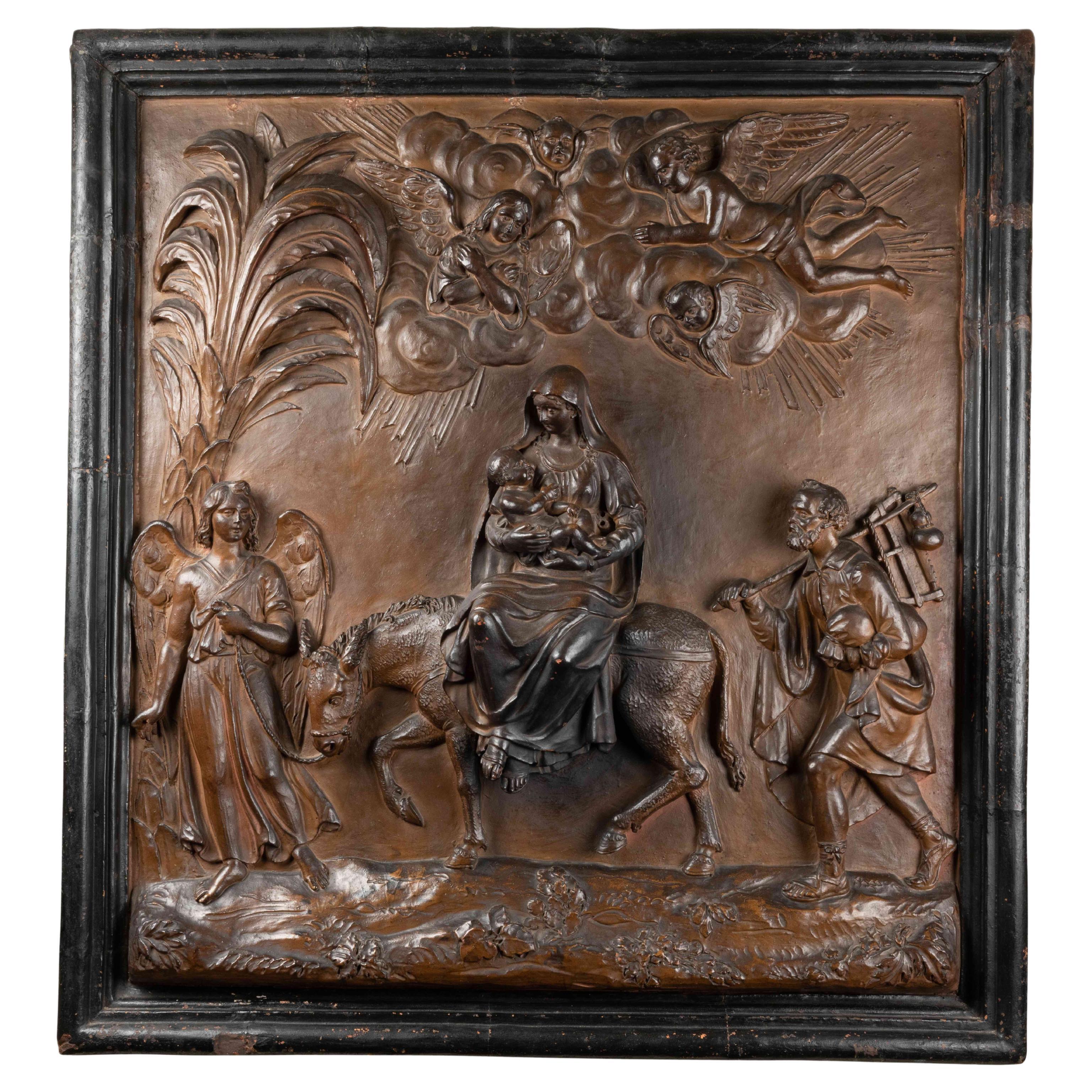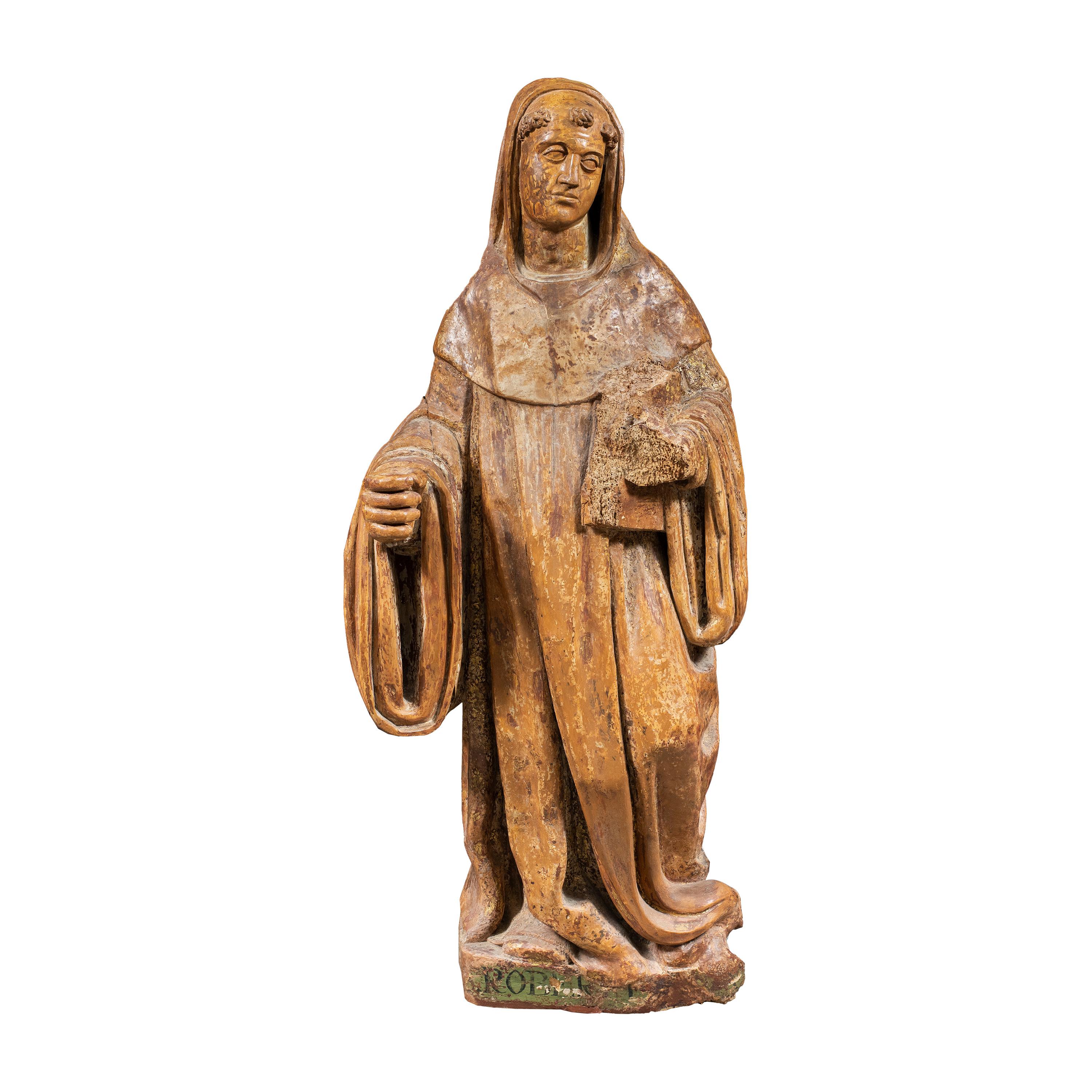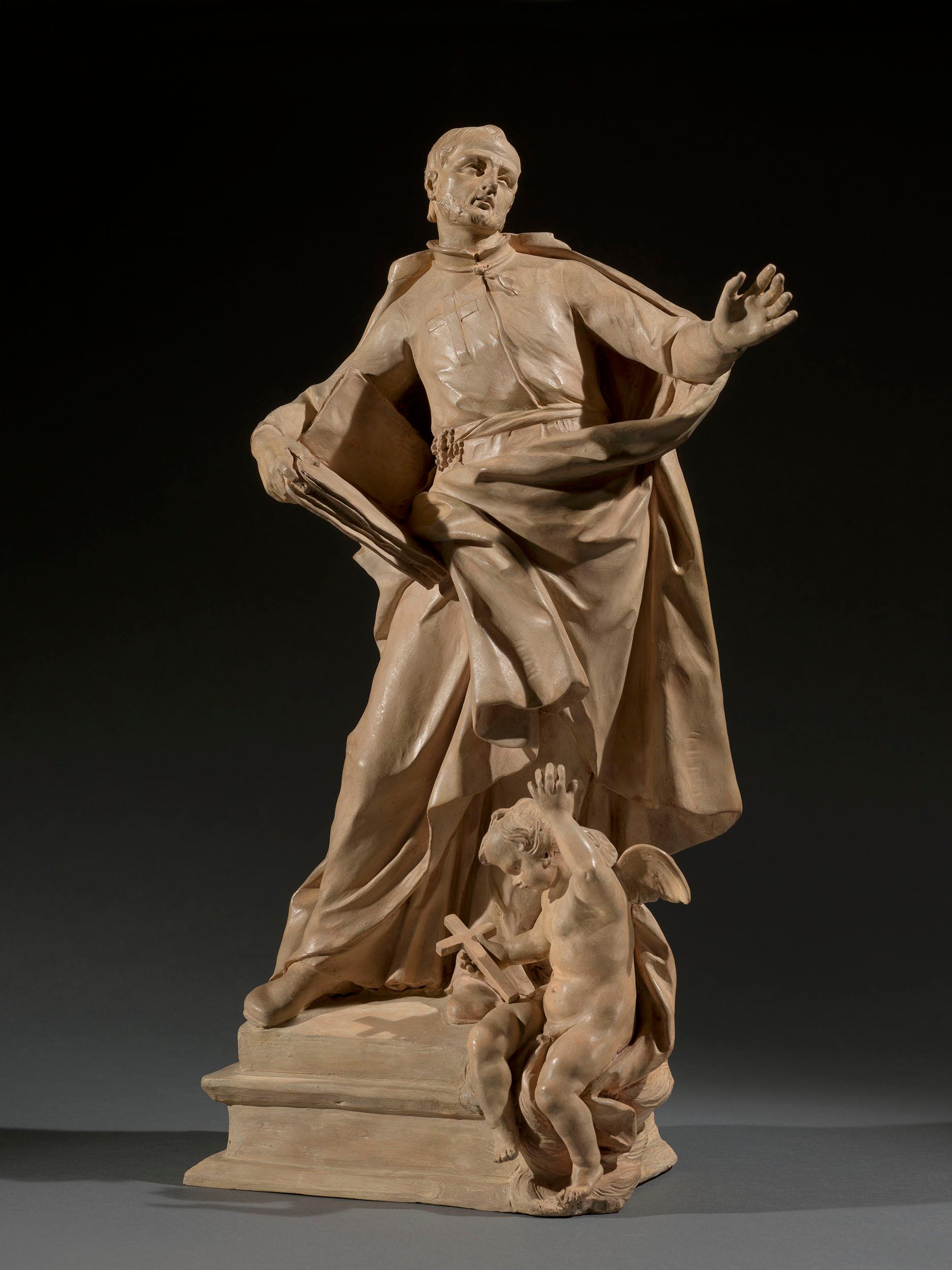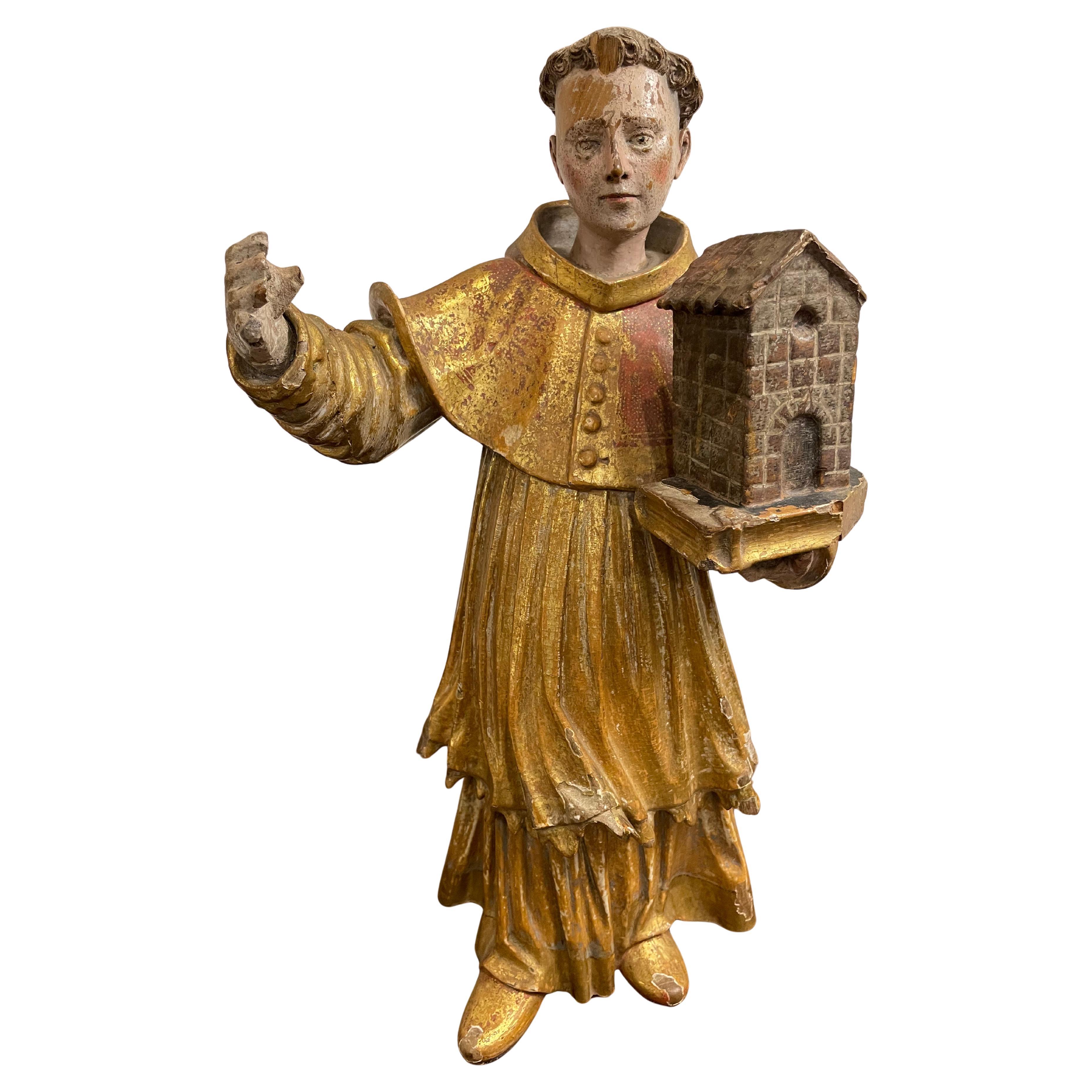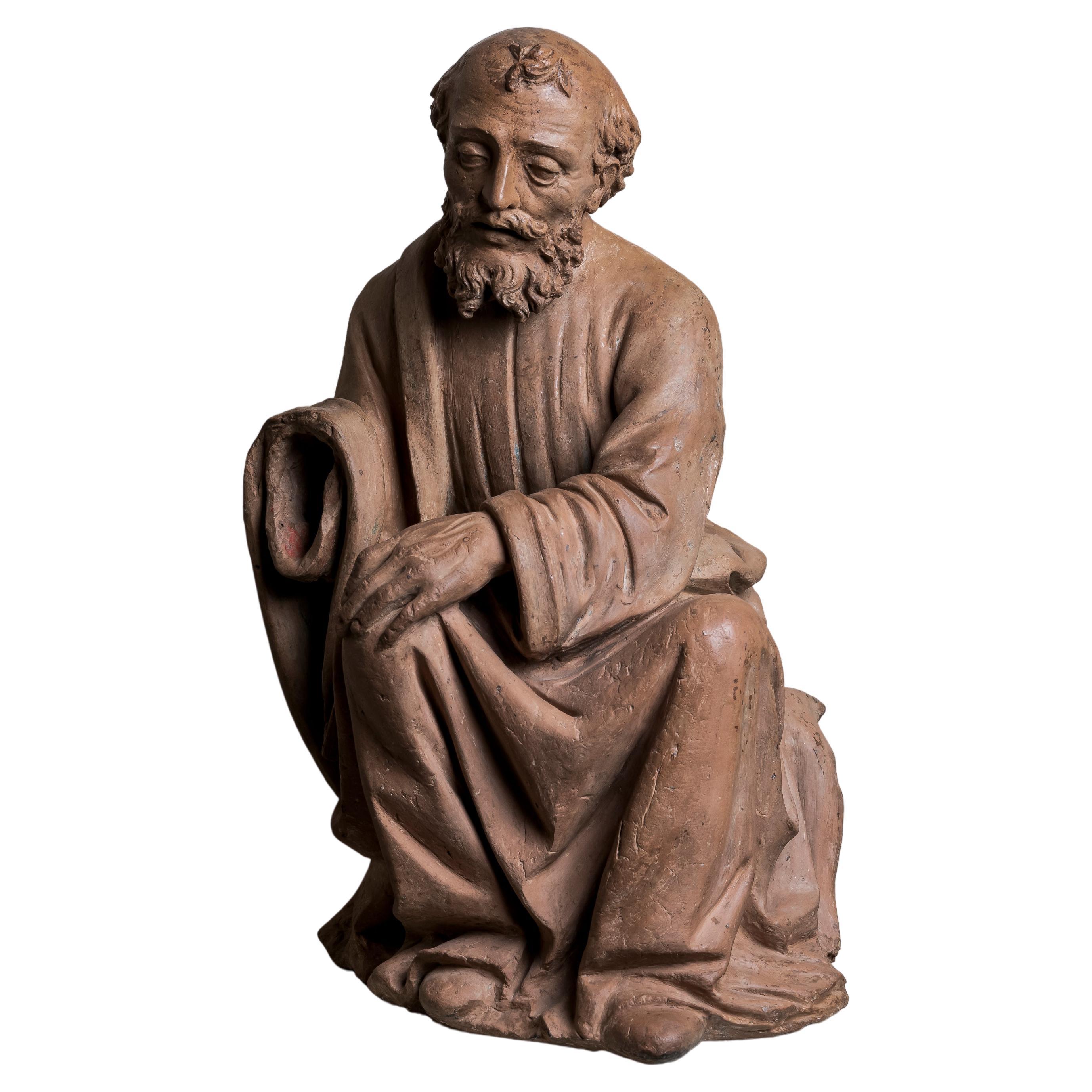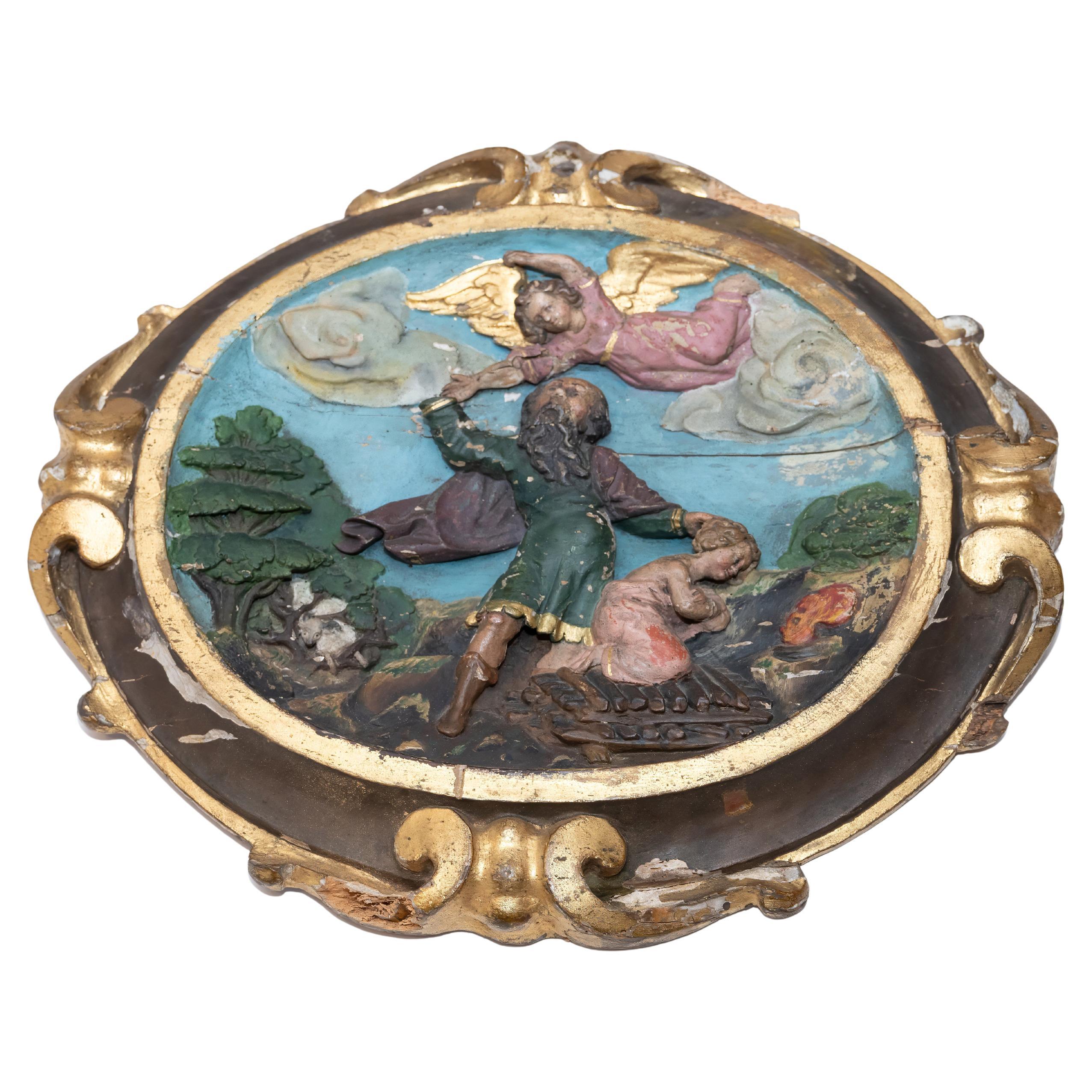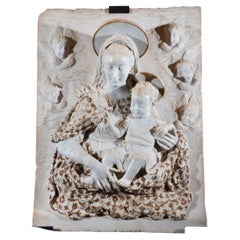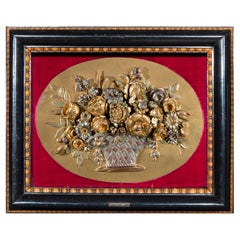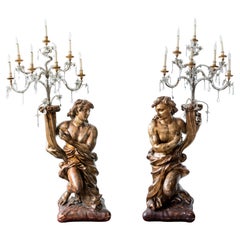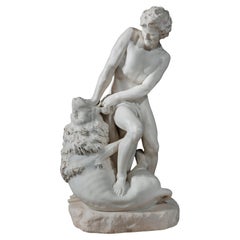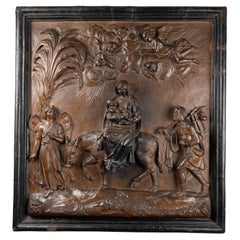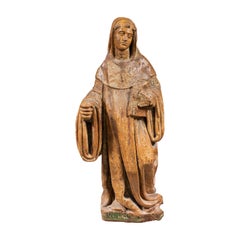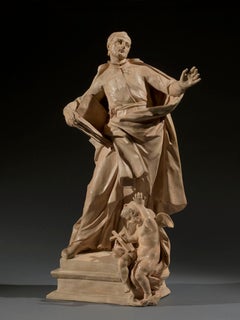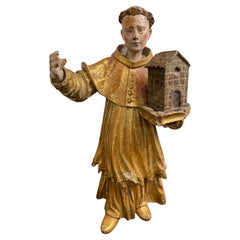Items Similar to Santi Buglioni, terracotta roundel depicting "St. Andrew"
Want more images or videos?
Request additional images or videos from the seller
1 of 5
Santi Buglioni, terracotta roundel depicting "St. Andrew"
$88,532.65
£66,508.21
€75,000
CA$124,087.80
A$134,781.84
CHF 71,355.72
MX$1,627,407.16
NOK 890,803.57
SEK 843,894.90
DKK 571,219.12
About the Item
Santi Buglioni (Florence, 1494 - 1576)
Glazed polychrome terracotta roundel depicting
"St. Andrew within a wreath of fruits and flowers," 70 cm diameter
- Dimensions:Height: 5.12 in (13 cm)Diameter: 27.56 in (70 cm)
- Materials and Techniques:
- Place of Origin:
- Period:
- Date of Manufacture:16th Century
- Condition:Wear consistent with age and use.
- Seller Location:Milano, IT
- Reference Number:1stDibs: LU9975245049782
About the Seller
No Reviews Yet
Vetted Professional Seller
Every seller passes strict standards for authenticity and reliability
1stDibs seller since 2024
- ShippingRetrieving quote...Shipping from: Milano, Italy
- Return Policy
Authenticity Guarantee
In the unlikely event there’s an issue with an item’s authenticity, contact us within 1 year for a full refund. DetailsMoney-Back Guarantee
If your item is not as described, is damaged in transit, or does not arrive, contact us within 7 days for a full refund. Details24-Hour Cancellation
You have a 24-hour grace period in which to reconsider your purchase, with no questions asked.Vetted Professional Sellers
Our world-class sellers must adhere to strict standards for service and quality, maintaining the integrity of our listings.Price-Match Guarantee
If you find that a seller listed the same item for a lower price elsewhere, we’ll match it.Trusted Global Delivery
Our best-in-class carrier network provides specialized shipping options worldwide, including custom delivery.More From This Seller
View AllLate 19th century sculptor Madonna and Child with cherubs' heads
Located in Milano, IT
Giovan Francesco Briglia (Rome 1737/39-1794),
"Interior of pantry with game birds and cat," oil on canvas, 74x100 cm; framed 85.5x110 cm
Accompanied by Professor Alberto Crispo's at...
Category
Antique Late 19th Century Italian Figurative Sculptures
Materials
Marble
Four carved, carved and gilded wooden panels, Piedmont, early 19th century
Located in Milano, IT
Four carved, carved and gilded wooden panels, Piedmont, early 19th century, depicting baskets of flowers, within ebonized wood and maple frames, total measurements: 47x57x12 cm
Category
Antique 19th Century Italian Figurative Sculptures
Materials
Wood
Italian sculptor of the 17th century, pair of candlesticks
Located in Milano, IT
Italian sculptor of the 17th century,
pair of candlesticks ...
Category
Antique Early 17th Century Italian Figurative Sculptures
Materials
Wood
Charles Romano, "Samson mauling the lion."
By Carlo Romano
Located in Milano, IT
"Samson mauling the lion."
White marble sculpture.
The work was exhibited in Milan, 1852, Imperial Regia Accademia di Belle Arti, Brera Palace.
Bibliography: Esposizione delle oper...
Category
Antique 19th Century Italian Figurative Sculptures
Materials
Marble
Gaspare Diziani, Joseph sold to Putifares
By Gaspare Diziani
Located in Milano, IT
The work depicts the famous episode in which Joseph, one of Jacob's twelve sons, is sold by his brothers to Putiphar, head of the guards of the king of Egypt.
Diziani became famous ...
Category
Antique 18th Century Italian Paintings
Materials
Canvas
Lombard painter of the late 18th/early 19th century -Manner of the Raineri
Located in Milano, IT
Lombard painter of the late 18th/early 19th century
(Rainers' way)
"Blue Heron of America,
tempera on canvas, 39.5x54 cm; framed 45x59x2.5 cm
titled at the bottom
Category
Antique 19th Century Italian Paintings
Materials
Canvas
You May Also Like
Large Terracotta Relief - Lombardy, First Half of 17th Century
Located in Bruxelles, BE
Large Terracotta relief of the flight into Egypt
Lombardy, first half of 17th century
Painted terracotta
91 x 85 x 11,5 cm
This event in the early life of Christ is recounted i...
Category
Antique 17th Century Italian Baroque Figurative Sculptures
Materials
Terracotta
$61,382 Sale Price
20% Off
Renaissance Italian sculptor - 16th century carved wood sculpture - Saint Robert
Located in Varmo, IT
Carved wooden sculpture - Saint Robert. Italy, 16th century.
54 x 30 x h 112 cm.
Entirely carved and painted wood with traces of polychrome and gilding.
- Inscribed on the base: "...
Category
16th Century Renaissance Figurative Sculptures
Materials
Wood
$3,541 Sale Price
25% Off
Roman 18th century terracotta model for the sculpture of San Camillo de Lellis
Located in London, GB
This remarkably fluid terracotta bozetto was made in preparation for Pietro Pacilli’s most important public commission, a large-scale marble statue of San Camillo de Lellis for the nave of St Peter’s Basilica in Rome. Expressively modelled, this terracotta sculpture is a rare and significant work made by a major Roman sculptor at a transformative moment of European sculpture. Pacilli began his working life on the great Baroque decorative projects initiated in the seventeenth century, but he found success as a restorer of ancient sculpture working to finish antiquities for a tourist market, becoming an important figure in the emergence of an archaeologically minded Neoclassicism. Pacilli trained Vincenzo Pacetti and provided important decorative work for the Museo Pio-Clementino, at the same time he is recorded restoring some of the most celebrated antiquities excavated and exported during the period.
Pacilli was born into a family of Roman craftsmen, his father Carlo was a wood carver, and Pacilli is recorded working with him on the Corsini Chapel in San Giovanni Laternao as early as 1735. In 1738 his terracotta model of Joseph and Potiphar’s Wife won the first prize in the second class of the sculpture concorso at the Accademia di San Luca, this is particularly notable as Bartolomeo Cavaceppi came third. He worked as a carver and stuccoist completing works for the churches of San Marco and SS. Trinita dei Domeniciani Spagnoli. Pacilli operated as a sculptor and restorer of antiquities from his studio at the top of the Spanish Steps, close to Santa Trinita dei Monti, where he is listed as a potential vendor to the Museo Pio-Clementino in 1770.
In 1763 Pacilli completed a silver figure of San Venanzio for the treasury of San Venanzio. He is recorded as Pacetti’s first master and it was evidently through Pacilli that he began to acquire his facility as a restorer of ancient sculpture. Pacilli, at his studio ‘poco prima dell’Arco della Regina alla Trinita dei Monti,’ exercised, what the nineteenth-century scholar, Adolf Michaelis called ‘rejuvenating arts’ on several important pieces of classical sculpture, including in 1760 the group of a Satyr with a Flute for the natural brother of George III, General Wallmoden, Hanovarian minister at Vienna. In 1765, Dallaway and Michaelis record that Pacilli was responsible for the restorations, including the addition of a new head, to the Barberini Venus which he had acquired from Gavin Hamilton. The Venus was then sold to Thomas Jenkins, who in turn passed it on to William Weddell at Newby Hall. In 1767 Pacilli exported a series of ancient busts ‘al naturale’ including portraits of Antinous, Julius Ceaser and Marus Aurelius, also a statue of a Muse and a Venus. As early as 1756 Pacilli seems to have been operating as an antiquarian, helping to disperse the collection of the Villa Borrioni. Pacilli supplied sculpture to notable British collectors, including Charles Townley, who on his first trip to Italy purchased the Palazzo Giustiniani statue of Hecate from Pacilli. Pacilli was involved with the Museo Pio Clementino from its conception, supplying busts of Julius Ceaser and a Roman Woman as well as completing stucco putti surmounting the arms of Pope Bendedict XIV to signal the entrance to the new Museo Critiano.
In 1750 Il Diario Ordinario del Chracas announced that Pacilli had begun work on a sculpture of San Camillo de Lellis for St Peter’s. Camillo de Lellis founded his congregation, the Camillians, with their distinctive red felt crosses stitched on black habits in 1591. Having served as a soldier in the Venetian army, Camillo de Lellis became a novitiate of the Capuchin friars, he moved to Rome and established a religious community for the purpose of caring for the sick. In 1586 Pope Sixtus V formerly recognised the Camillians and assigned them to the Church of Santa Maria Maddalena in Rome. Camillo de Lellis died in 1614 and was entombed at Santa Maria Maddalena, he was canonised by Benedict XIV on June 26, 1746. It was an occasion that prompted the Camillians to make a number of significant artistic commissions, including two canvases by Pierre Subleyras showing episodes from San Camillo’s life which they presented to Benedict XIV. In 1750 Pacilli was commissioned to fill one of the large niches on the north wall of the nave with a sculpture of San Camillo.
The present terracotta bozetto presumably had two important functions, to enable Pacilli to work out his ideas for the finished sculpture and at the same time to show his design to the various commissioning bodies. In this case it would have been Cardinal Alessandro Albani and Monsignor Giovan Francesco Olivieri, the ‘economo’ or treasurer of the fabric of St Peter’s. Previously unrecorded, this terracotta relates to a smaller, less finished model which has recently been identified as being Pacilli’s first idea for his statue of San Camillo. Preserved in Palazzo Venezia, in Rome, the terracotta shows San Camillo with his left hand clutching his vestments to his breast; the pose and action more deliberate and contained than the finished sculpture. In producing the present terracotta Pacilli has expanded and energised the figure. San Camillo is shown with his left hand extended, his head turned to the right, apparently in an attempt to look east down the nave of St Peter’s. The model shows Pacilli experimenting with San Camillo’s costume; prominently on his breast is the red cross of his order, whilst a sense of animation is injected into the figure through the billowing cloak which is pulled across the saint’s projecting right leg. The power of the restrained, axial contrapposto of bent right leg and outstretched left arm, is diminished in the final sculpture where a baroque fussiness is introduced to the drapery. What Pacilli’s terracotta demonstrates, is that he conceived the figure of San Camillo very much in line with the immediate tradition of depicting single figures in St Peter’s; the rhetorical gesture of dynamic saint, arm outstretched, book in hand, head pointed upwards was perhaps borrowed from Camillo Rusconi’s 1733 sculpture of St. Ignatius...
Category
18th Century Baroque Figurative Sculptures
Materials
Terracotta
An Italian Polychrome Figure of a Saint, 18th Century
Located in ARMADALE, VIC
An Italian Polychrome Figure of a Saint, 18th Century
Provenance:
Private Western Australian Collection.
Description:
Clad in a double skirted gilt vestment, the figure holds a s...
Category
Antique 18th Century Italian Figurative Sculptures
Materials
Wood
$5,100 Sale Price
40% Off
Fra Mattia Della Robbia, Saint Joseph, Tuscany, Around 1505-1510
By Della Robbia
Located in Bruxelles, BE
Fra Mattia Della Robbia (Firenze 1468-1534)
Saint Joseph
Terracotta
Tuscany, around 1505-1510
55 x 40 x 30 cm
Marco della Robbia the Younger (April 6, 1468 in Florence - 15...
Category
Antique 16th Century Italian Renaissance Figurative Sculptures
Materials
Terracotta
"The Binding of Issac" An Italian 17th century Polychrome Sculpture
Located in New York, NY
A masterful example of religious storytelling rendered in sculptural form, this Italian 17th century polychrome relief sculpture depicts the powerful biblical scene of The Binding of...
Category
Antique 17th Century Italian Sculptures and Carvings
Materials
Wood
More Ways To Browse
Antique Corona
Roman Marble Fragment
Roman Porphyry
Rosenthal Porcelain Figure
Rousseau Bronze
Royal Dux Figurines
Sculpture Bronze Diane
Smoking Sculpture
Snake Dancer
Standing Buddhas
Stella Bronze
Stone Carved Faces
Stone Male Sculptures
Terracotta Clodion
Terracotta Fruit
Terracotta Warrior
Vintage Girl With Dog
White Capodimonte
